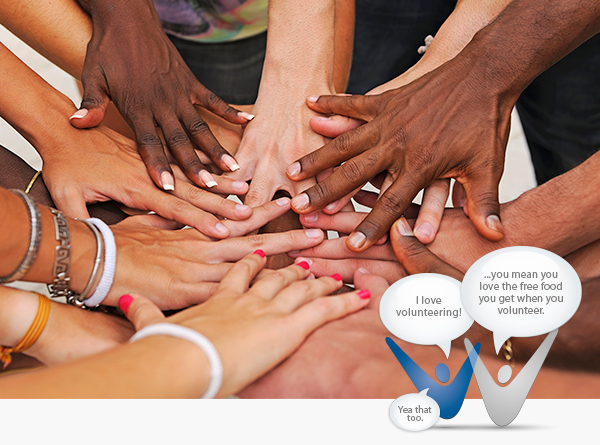
On the day of your fundraising auction, it’s important for you to mingle and network with your guests so you can establish and nurture relationships with donors. This means that you will need volunteers to act as your “auction day team” to help your event run smoothly.
Every auction event is different, but here are 6 common duties to fill.
1. Registration
If you’re using a computer-based system for guest registration and auction check out, then be sure to find volunteers with good computer skills. Although you will be training volunteers, it’s better if they can learn and understand the software quickly.
Don’t hesitate to be a little picky about who you put up front at the registration table. They are your guests’ first impression of the event as they walk through the door, so encourage your volunteers to be warm and welcoming and greet new arrivals with a smile! Event check-in can also get overwhelming at times with lots of people showing up at once, so make sure you select volunteers who can handle themselves and know how to interact with large groups.
{{cta(’30b75717-a932-4b13-bb55-8fc2c1d62608′)}}
2. Handling Money
Whoever is working as cashier and is handling the money for the night should be someone you know well and preferably a member of the organization.
3. Floaters
Select a few volunteers to act as table monitors who watch over the bidding process and help answer any questions donors might have. They can also keep an eye on smaller items that can easily be stolen as well as pick up the bid sheets once a section has been closed out.
Floaters are particularly important during auctions using mobile bidding. Donors who are new to mobile bidding technology often have questions or need direction using the software properly. Make sure these volunteers are tech-savvy, well trained and familiar with the technology so they can address any issues that arise and keep your donors bidding!
4. Runners
You’re going to have a lot of miscellaneous jobs throughout the evening, so make sure to have spare volunteers you keep close by who can perform various tasks and help whenever their assistance is needed.
5. Item Checkout
Similar to registration, if you are using computers to register and check out donors who purchase items, make sure you find people who are familiar with the software being used. Depending on the size of your event, make sure you have enough computers to account for all the guests trying to check out. That way your guests aren’t being held up at checkout when their having a good time and trying to leave.
6. Setup and Clean up
Before the event, it’s important to have plenty of volunteers to help with setup so you aren’t still decorating as guests arrive. It’s also nice to have your auction day team help with clean-up so the process goes more quickly and everyone can head home. If you have a large number of volunteers to draw from, have a group of them arrive halfway through the event to give your initial group a break. Then you also have a fresh group of volunteers to help with checkout, clean up and tear down.
{{cta(‘8ee7d503-c9ba-4b63-83cd-0d389f063597’)}}
Prioritizing the Volunteer Experience
It may be tempting to assign the same individuals to multiple tasks, such as putting the same people on registration and item check out, but keep in mind the level of time commitment you’re asking of your volunteers. Asking them to be on task from beginning to end is a long shift!
Just like your guests, volunteers will remember their experience when deciding whether or not to participate again in future events.
Make sure you provide your volunteers with plenty of food and refreshments. Give them frequent breaks and encourage them to socialize and even participate in the event – such as the silent auction – when it’s appropriate. Be clear about your expectations for when it’s OK to relax and when you need them to be on top of their game. Clearly state that alcohol is prohibited until after the event.
Finding Volunteers
There are many ways to find volunteers for your fundraising auction. Ask past volunteers, post job ads on Nonprofit boards, update your social media pages and look to people in your community. There are also local businesses and organizations you can contact for help:
- Larger local corporations often have a community service task force
- Collegiate organizations
- Community service organization
You’d be surprised by how many people want to help and support a good cause – they just need to be asked.
